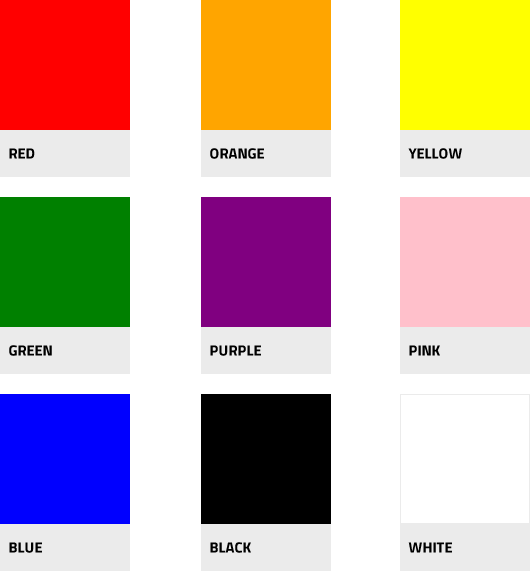











Some of the reasons we get for not designing the website for the businesses are ‘’I’m not tech savvy’’, ‘’they are too expensive’’, ‘’I don’t have time’’, or the infamous ‘’I have enough business, I don’t need one’’. But that is not the correct approach. You do not have to be tech savvy to have a website. The purpose is to get more clients in an easy and cost effective way and yet make your company reachable for thousands of clients around the world.

About 90% of the people make purchases online through websites these days. Having your own website is a necessity to create your online presence and increase you visibility. People would want to research on the product first before making a purchase even if they have heard about your company.
The direction section of the website is quite helpful for the people who may have trouble finding the location of your stores. The most important reason for having a website is that it gives the business a credibility to build trust amongst the customers.
Branding creates a memorable impression of your business that builds trust, motivates employees and helps in acquiring new customers in no time.
Your brand is the “face” of your company. Make it memorable — and strong enough to leave the desired impression.
Developing a strategic plan for the company can help in achieving long-term financial gain. To optimize the ROI, increase the company’s value and ensure the company meets its financial objectives.
A professional appearance builds credibility and trust. People are more likely to engage with a business that appears polished and legitimate.
When employees understand your mission, they feel the same pride and will work to achieve your shared goals. As it is said “Interesting things happen when the creative impulse is cultivated with curiosity, freedom and intensity.”
Branding enables your company to get referral business. Could you tell a friend about the new shoes you love if you can’t remember the brand? Word of mouth referrals are only possible after you’ve delivered a memorable experience.
Creating a website that is appropriate enough to work on every device and screen size, whether the device is small or large, desktop or mobile. It is focused around providing a gratifying and intuitive experience for everyone.
Your website has to be user friendly and should have some essential characters learnability, efficiency and memorability. It should be easily workable and accessible to others. Understanding these facts and applying the concepts will significantly improve your website.
Many businesses are taking web design back to the basics with minimalistic designs and layouts. Websites are featuring fewer pages, with simpler designs and more blank space. Some websites are also implementing what’s referred to as “Flat Design”.


01. Business Website The business website is an important element of a larger marketing plan, which provides a presence for your business. It is a place where you can attempt your marketing activities to drive more traffic. 02. E-Commerce Website: The easiest and the simplest form for shopping online is through an e-commerce website. Internet sales are increasing rapidly through these websites. The vendors offer lower prices here compared to stores. It saves a lot of time and energy and is convenient for the customers to get hold of supplies at the comfort of their home. 03. Blog site: A blog is a place where you can express yourself to the world by sharing your passions and thoughts. You can continuously update the information whenever you feel the need for it. It is said to be your own website that you can update on an ongoing basis.
Color is a key consideration for all visual materials
The most successful logos are simple in terms of colors. In fact, two of the most basic colors — black and red — are used most frequently. Think of some of the world’s most successful logos, such as Pepsi, Coke and Starbucks, which use just one or two colors each.
Identify the key emotional message you want your logo to communicate and choose colors to convey that emotion:
Color relatability can be generational and gender-specific. Both men and women say blue is their favorite color and brown their least favorite, but women also like purple, whereas men don’t care for it at all. On the other hand, men are slightly more partial to black.

Typefaces are as important as color. Consider what the look of your text says to clients and potential customers:
Yes! It’s important to have a style guide laying out standards for the visuals and copy associated with your brand. A style guide maintains consistency across your organization — no matter how large or small. Here are six elements to think about when developing your guide. After the guide is complete, share it with your employees and revisit it annually to see if updates are needed.
To study the mission is very important. Research on the history of the company to get details and explain in clear words, what the company is all about?
Your style guide should include your logo in various sizes and file formats, and guidelines dictating how and where the logo may be used for making it look better.
Select fonts and sizes according to the company’s standard. A font does everything from representing the brand, to increasing legibility.
The most important thing for the marketing professionals and copywriters who are working on your brand is voice guidelines. Who is speaking? What is the voice of the company? Can you give some background information that helps the user understand how to speak with that voice?
Some brands are instantly recognizable by the color of their logos. These colors are forever associated with the companies. Careful selection of colors will help in recalling the brand easily.
Are there certain types of imagery that fit with your brand style? Provide clear guidelines to simplify selecting photos for creative materials.

